The NOWPAP Regional Action Plan on Marine Litter (RAP MALI) has been implemented since March 2008 right after the approval by the four member states, as a major outcome of the two-year project called the NOWPAP Marine Litter Activity (MALITA) carried out from November 2005 to the end of 2007. RAP MALI is the second phase of NOWPAP marine litter activities and consists of three key elements:
- · prevention of marine litter input to the marine and coastal environment;
- · monitoring of marine litter quantities and distribution; and
- · removing existing marine litter and its disposal.
In the NOWPAP region, marine litter issues will be continuously addressed through RAP MALI as a part of the NOWPAP programme of work, together with other environmental issues such as oil spills or harmful algal blooms. Most of the RAP MALI activities are being implemented at the national level, in cooperation with local governments and authorities within the NOWPAP region.
According to the RAP MALI, the following activities have been carried out in 2008-2009:
(1) Sectoral guidelines developed during the MALITA implementation were translated into the national languages of the NOWPAP member states, in cooperation with the Regional Activity Centers and the Marine Litter National Focal Points, and distributed as widely as possible.
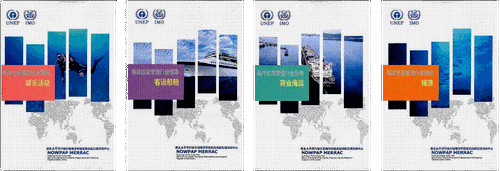
(2) Two NOWPAP ICC campaigns were organized in September 2008 in Dalian, People’s Republic of China and in Vladivostok, Russian Federation, respectively, in addition to the annual national International Coastal Cleanup (ICC) campaigns held in Japan and the Republic of Korea.
(3) Two workshops on marine litter were held in September 2008 in China and Russia, respectively. Prior to the NOWPAP ICC campaign in Dalian, China, a workshop on marine litter prevention and control was organized on 12 September 2008 with financial support from the government of China. Similarly, in Russia, a training workshop was organized on 26 September 2008 in Vladivostok with financial support from the government of Japan, to illustrate how to organize the annual ICC campaigns, including data collection ad management.
(4) A working meeting was conveyed, back-to-back with the training workshop and the ICC campaign, on 28 September 2009 in Vladivostok, Russia, to discuss the current progress on the implementation of RAP MALI and future activities.
(5) NOWPAP marine litter database developed during the MALITA project by DINRAC was updated using the recent results of the national marine litter monitoring programmes and the ICC campaigns of the member states.
(6) National summaries (prepared initially during the MALITA implementation) on legal instruments, institutional arrangements and programmes related to marine litter, including solid waste management, integrated coastal and river basin management, and market-based economic incentives were updated and compiled into a regional overview.
(7) Several technical reports and brochures were published by MERRAC and CEARAC, some information can be found at the following websites:http://www.cearac-project.org/MALITA/Current_Situation_of_Marine_Litter/top.htm
and
http://merrac.nowpap.org/controller?pgm_id=merrac.client.cm.ImgBoardClient&arg=202&menuid=menu4&historyid=3 |12
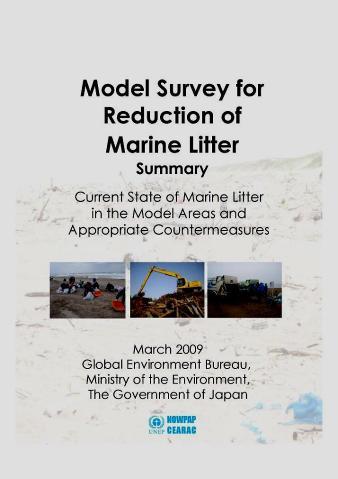
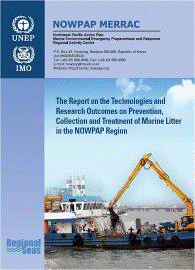
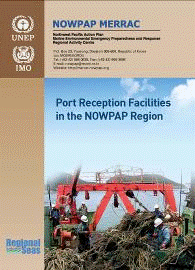
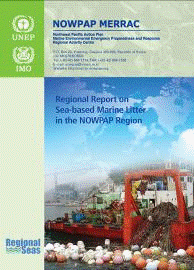
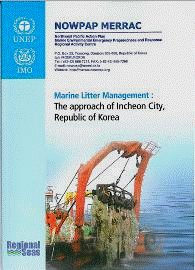
(8) Information on national activities dealing with the marine litter problem was reviewed periodically and posted at the NOWPAP website.
In 2010-2011, the following activities have been carried out:
- 1. NOWPAP International Coastal Cleanup campaign and workshop on marine litter management on 26-27 March 2010 in Hirado, Japan.
- 2. Working meeting on 28 March 2010 in Hirado, Japan, to discuss over NOWPAP RAP MALI workplan and budget for 2010-2011 biennium.
- 3. NOWPAP National Monitoring results are abailable.
 The web platform of the Regional Node provides stakeholders in the East Asian Seas region with access to knowledge, resources and networking services on marine litter and plastic pollution for informed action.
The web platform of the Regional Node provides stakeholders in the East Asian Seas region with access to knowledge, resources and networking services on marine litter and plastic pollution for informed action.







